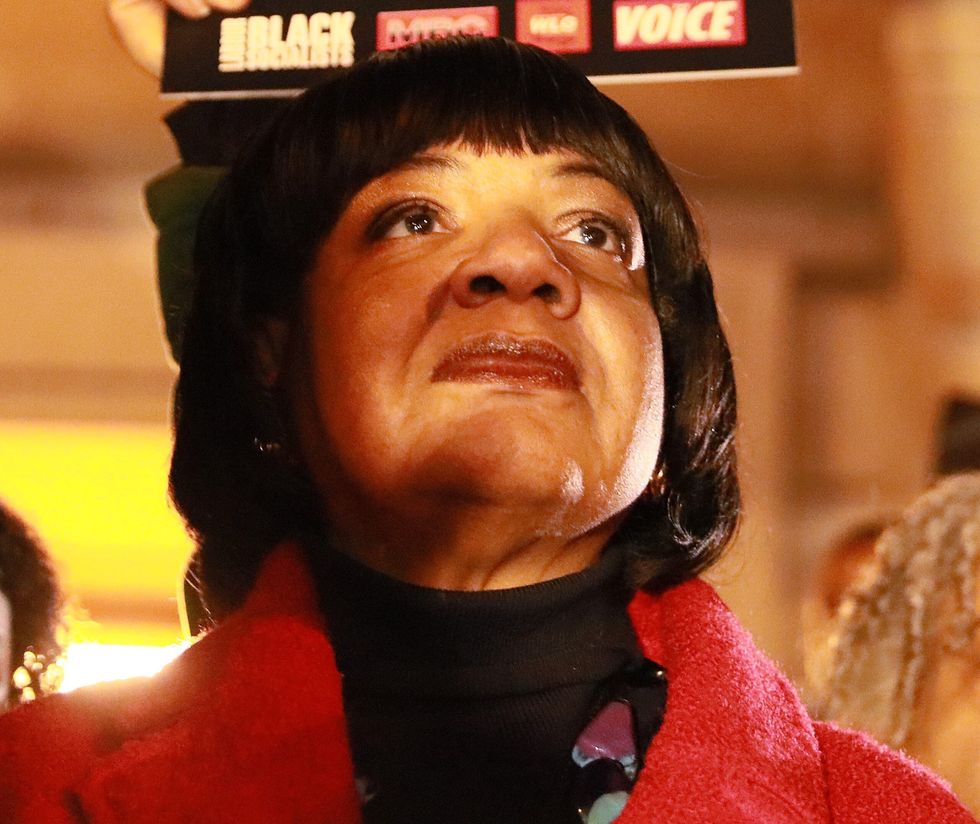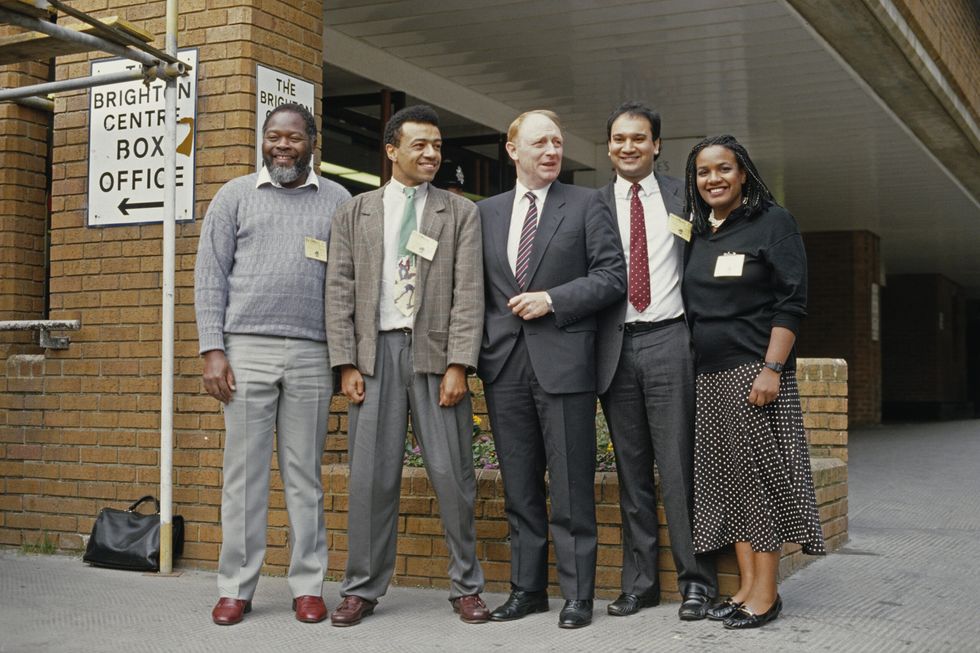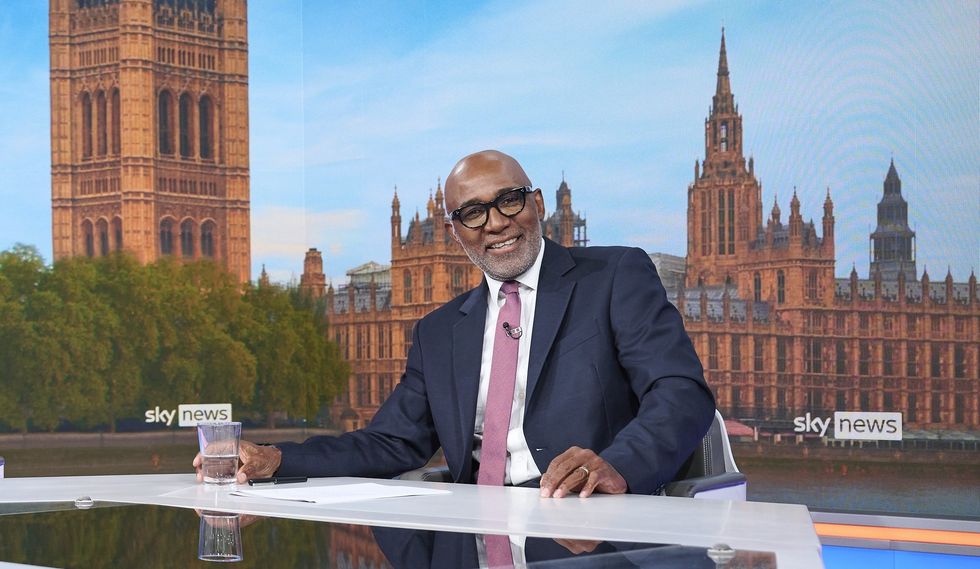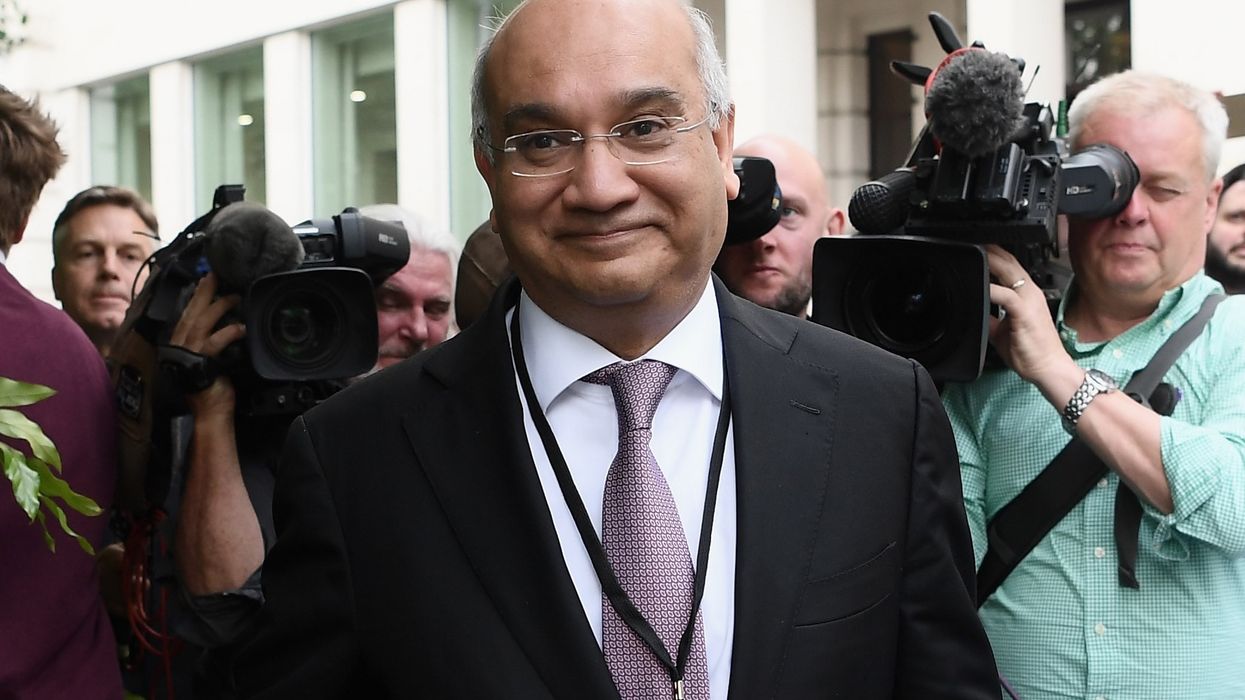ONE of Britain’s first ethnic minority members of parliament has told Eastern Eye of his regret at not being able to “move the dial forward” in the fight against racism, while urging the current generation to do more.
Keith Vaz was the first Asian MP for nearly sixty years when he was elected in 1987. In the same year, Diane Abbott, Bernie Grant and Paul Boateng were the first black MPs to win seats.
“The fact is, we didn't move that dial because we were so small in numbers, but there's no excuse now,” Vaz told Eastern Eye.
“If I was to make any call, it is for all these people (politicians) to act in unison, to come together and say, ‘forget about party politics, we're not interested in party politics, I'm only interested in communities uniting and calling this out’. Unfortunately, this has not happened, which is very sad.”
The Conservative government was last week caught-up in a racism scandal when its biggest donor, businessman Frank Hester, said Abbott made him “want to hate all black women” and that she “should be shot”.
She called Hester's comments "frightening" and "alarming" given the murders of MPs Jo Cox and David Amess in recent years.
Hester is also alleged to have said, “no room for the Indians, then?” during a crowded meeting, and suggested that they “climb on the roof, like on the roof of the train there”.
Vaz said, “Actually, if there is a failure of the Gang of Four (Vaz, Abbot, Grant and Boateng), is that people (Hester) can speak like this.
“In 2024, when you've got Indian origin prime minister, they're still talking about racism. You're still writing articles about this. And this is a failure. We failed to win this argument – the dial has come off the scales in winning the hearts and minds of people.”

Hester is the CEO of software company The Phoenix Partnership which has won more than £400 million in government and NHS contracts. He donated more than £10 million to the Tories and paid £15,000 for prime minister Rishi Sunak to take a helicopter trip late last year.
His comments, made in 2019, emerged as the government pledged to crack down on extremism, and with increasing concern about the safety of MPs, after murders of Cox and Amiss and others facing threats and intimidation.
Downing Street initially refused to call the remarks “racist”, insisting instead that they were “unacceptable”.
Sunak later condemned the remarks as “racist and wrong”, but he has continued to face calls to return the money Hester has donated and confirm whether a further £5m is in the pipeline.
Sunak added that “there's no place for racism in Britain and the government that I lead is living proof of that”.
Vaz said the country had made “massive strides” when it came to representation in politics. But told Eastern Eye that racism in politics and wider society was a reflection of failure to implement policies that tackle the issue.
“When Diane and I first got involved in Black Sections (a group made up of Labour Party members of Black and Asian descent from 1983 to 1993), it had a dual purpose – it was policy and representation,” the former MP for Leicester East said.
“You didn't just have people who were black and Asian. We actually worked on making policies that had a profound effect on people.
“It made life much easier and at a grassroots level it has made a difference. For example, halal food in schools. Diwali is being celebrated in such an incredible way in places like Leicester, Brent and Harrow. You have Ramadan lights going up. You have all the religious festivals being celebrated - things that were not possible 36 years ago, when I first got elected. There have been outward movements in terms of religion.”
He added: “But where we have not made progress is in terms of real hard policy changes, that will mean people of ethnic minority origin are able to get to the top of their professions. That's why if you look at newspapers, as opposed to politics, you've had one editor of a national newspaper in Amol Rajan.
“Policies have not had that much effect when it comes to tackling racism and that's why these comments (Hester’s) come out from people. What was said about Diane was appalling. And it was extended to all black women. But that has been said in the past, to members of the Asian community at a grassroots level. The personal stuff never gets reported. This got reported, because this man made a public speech and we are in the age of social media.
“The policies have not caught up with representation and this is the reason we have this problem everywhere - in all the political parties and in all of society.”
Politicians such as former prime minister Liz Truss, former home secretary Suella Braverman, Reform’s new MP (and former Tory MP) Lee Anderson and Rochdale’s former Labour candidate Azhar Ali have been accused of making divisive comments.
Braverman, for example, claimed last month that “the Islamists, the extremists and the anti-Semites are in charge now. They have bullied the Labour Party, they have bullied our institutions, and now they have bullied our country into submission”.
Ali alleged Israel had allowed the October 7 attacks by Hamas as a pretext to invade Gaza.
“When political leaders make statements, they are appealing to their base,” said Vaz, pointing towards a wider societal issue.
However, Sir Trevor Philips, a broadcaster, activist and former Labour politician, urged people from refraining in making blanket statements on politicians or political parties.
“I read (Braverman’s comments) as saying that extremists of all kinds, have too great an influence in British politics. And I think that's not at all an unfair argument to make. I don't agree with it. But I think it's a perfectly legitimate point to make,” Phillips told Eastern Eye.

“You could, for example, say that the Conservative Party is responding too readily to the demands of people of what I would call anti-immigrant extremists.
“If the point she's making is that conventional politics is being is being distorted, if I can put it that way, by the demand and pressure from extremists, there's a fair case to be made about that.
“But one of the things I don't really like is the way people talk about these things. They say slogans like, ‘all politicians are racist’, or ‘no politician is doing enough’. That's the language of people who've never actually been in politics and don't know quite how difficult it is.”
He added: “That's exactly what they want. They want people to have that conversation where everybody throws words at everybody else ‘you're stoking division. You're encouraging extremism’ and so on. We can all have a lot of good fun pointing the finger at somebody else and saying what we think, but what I personally am interested in is solving the problem. Not proving that I'm more right thinking than anybody else. I want to solve the problem, rather than describe it.”
Phillips explained the way forward is to ensure there is a “person of colour in every room”.
“In my own company, just to give you a very concrete example, we have a rule, but no big decision is can be made in a room which isn't diverse - by which we mean a room where there aren't isn't at least one person of colour or at least one woman because what we've what we know is that a diverse room makes a different and better decision. It also stops people being saying dumb, sexist, racist things.”
Abbott, who now sits as an independent MP, hit out at racism within both the Conservatives and Labour parties.
She argued the government's Rwanda deportation scheme showed they intend to play “the race card” as the next election approaches.
Abbott also criticised Labour, saying “racism in politics is not just a matter for any one political party”.
On the back of Hester’s comments, Conservative minister Nus Ghani tweeted that "zero tolerance on racism is just a slogan in today's politics", although she did not specifically mention the row in her post.
Scotland’s first minister Humza Yousaf waded into the argument, hitting out at the Conservative Party for being “institutionally Islamophobic”.
Asked if political parties were doing enough to tackle racism, Phillips said “probably not”, but added “it's very fashionable these days for people to beat their breasts and say how terrible it is and all that - I don't really care about that, I'm more interested in can we fix it?”
“What Frank Hester was racist and outrageous. The important thing was not that he said it, but that it is so commonplace in workplaces up and down this country.
“People are beginning to lose sight of the worst part of what's happening here by thinking only about this one guy. The worst part of what's happened here is that it isn't that unusual.
“The other thing which is even worse, and also apply to the Azhar Ali case, is that nobody told these guys they were wrong.
These are the things we ought to be concentrating on, rather than, generalised statements about whether this one is racist or that party is racist.
“The real thing we ought to be asking ourselves is, why is everybody silent when these things happen? Because just turning them into political weapons is the wrong thing to do.
“We need to be asking why nobody is calling these things out when they happen,” Phillips said.
“In the case of Ali, the room was full of elected Labour people who must have known what he said was wrong, but they said nothing.
“In the Frank Hester case, he was talking to people who worked with him, whose wages he pays, who are probably afraid they'll lose their jobs if they speak out. That's a different problem, but it's one that's equally important to deal with, that we have to have in our workplaces a culture which allows somebody to say to the boss, ‘you're being bigoted, you're being racist’.”
The UK on Thursday (14) unveiled a new definition of extremism in response to an eruption of hate crimes against Jews and Muslims since the October 7 Hamas attacks on Israel.
The former home secretary and chancellor, Sir Sajid Javid, said the government’s new definition of “extremism” has resulted in a debate that is “high on emotions, low on solutions”.
“At the heart of the matter is a sickness of social cohesion across the country, and one that must be finally addressed,” Javid said. Recalling one of his initiatives as communities secretary, he said he had launched an integration strategy, “hoping to start a wider conversation about how we can build stronger, more united communities. Then, as now, it was clear that there are far too many divisions across the country.

“In the worst-affected areas, social mixing is reduced, distrust is prevalent and misunderstanding easily created. These are the perfect conditions for divisive voices to flourish,” he said.
Phillips added that the current generation needs to take inspiration from previous generations on how to go about tacking racism and social cohesion.
“My advice to everybody is, you can't you can't change the world by shouting at it. You have to do what our parents and our grandparents did, which is to fight every single specific fight - one by one.
“They stood up on very small things bit by bit and they just changed people,” Phillips said.
“Don't let anybody kid you that grand gestures and big slogans are the answer. The answer is that every person of colour and every ally to a personal colour has to try in very small ways every single day every time something like this comes up, that's how change gets made.”




